
Volcanoes National Park: A Realm of Majestic Peaks and Gentle Giants
Nestled in the northwest of Rwanda, Volcanoes National Park is a haven of lush greenery and striking volcanic peaks. This park is home to the endangered mountain gorillas, offering a unique and unforgettable wildlife experience. The park's landscape is dominated by five volcanoes: Karisimbi, Bisoke, Sabyinyo, Gahinga, and Muhabura, each contributing to the breathtaking scenery and rich biodiversity. The primary draw for visitors is the chance to trek through dense forests to observe mountain gorillas in their natural habitat. This once-in-a-lifetime experience allows you to witness these gentle giants up close. The park's trained guides ensure both your safety and the protection of the gorillas, making it a responsible and educational adventure. Beyond gorilla trekking, the park offers a variety of other activities. You can explore ancient caves, hike to the top of volcanic peaks, and visit the grave of Dian Fossey, the renowned primatologist who dedicated her life to studying and protecting mountain gorillas. The park's diverse flora and fauna, coupled with its stunning landscapes, make it a must-visit destination for nature lovers and adventure seekers alike.
Local tips in Volcanoes National Park
- Book your gorilla trekking permit well in advance as they are limited and highly sought after.
- Wear comfortable, waterproof hiking boots and bring a rain jacket, as weather conditions can be unpredictable.
- Hire a local porter to help carry your gear during treks; it also supports the local community.
- Acclimate to the altitude by spending an extra day in the park before starting strenuous activities.
- Respect the gorillas by maintaining a safe distance and following the guidance of your trek leader at all times.
Volcanoes National Park: A Realm of Majestic Peaks and Gentle Giants
Nestled in the northwest of Rwanda, Volcanoes National Park is a haven of lush greenery and striking volcanic peaks. This park is home to the endangered mountain gorillas, offering a unique and unforgettable wildlife experience. The park's landscape is dominated by five volcanoes: Karisimbi, Bisoke, Sabyinyo, Gahinga, and Muhabura, each contributing to the breathtaking scenery and rich biodiversity. The primary draw for visitors is the chance to trek through dense forests to observe mountain gorillas in their natural habitat. This once-in-a-lifetime experience allows you to witness these gentle giants up close. The park's trained guides ensure both your safety and the protection of the gorillas, making it a responsible and educational adventure. Beyond gorilla trekking, the park offers a variety of other activities. You can explore ancient caves, hike to the top of volcanic peaks, and visit the grave of Dian Fossey, the renowned primatologist who dedicated her life to studying and protecting mountain gorillas. The park's diverse flora and fauna, coupled with its stunning landscapes, make it a must-visit destination for nature lovers and adventure seekers alike.
When is the best time to go to Volcanoes National Park?
Iconic landmarks you can’t miss
Akagera National Park
Explore Akagera National Park: A captivating wilderness experience with diverse wildlife, stunning landscapes, and serene lakes in the heart of Rwanda.
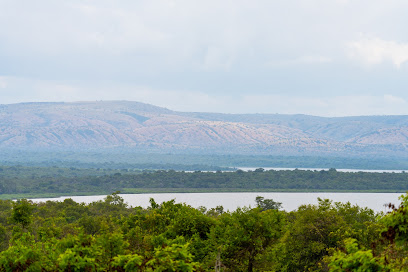
Nyungwe Forest National Park
Explore the lush biodiversity and stunning landscapes of Nyungwe Forest National Park, Rwanda's premier destination for nature lovers and adventurers.
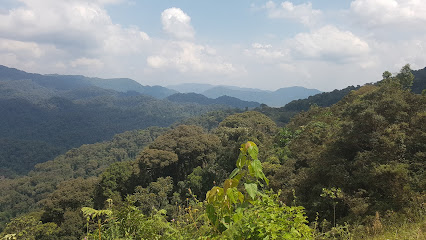
Volcanoes National Park Headquarters
Experience the breathtaking beauty of Volcanoes National Park, home to mountain gorillas and stunning landscapes in Rwanda.
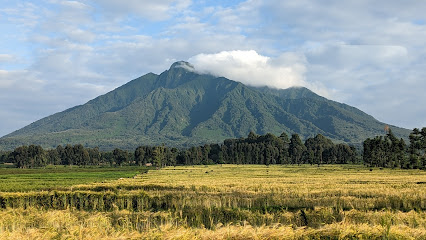
King's Palace Museum
Explore the rich cultural heritage of Rwanda at the King's Palace Museum, where royal history comes alive through captivating exhibits and serene landscapes.
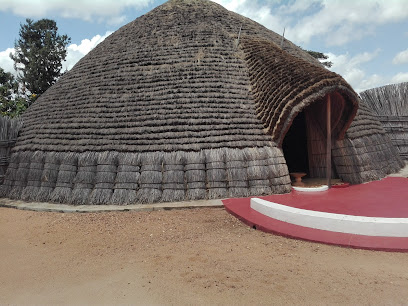
Belgian Peacekeepers Memorial
Explore the Belgian Peacekeepers Memorial in Kigali, a touching tribute to heroism and a vital lesson in peacekeeping and Rwanda's history.
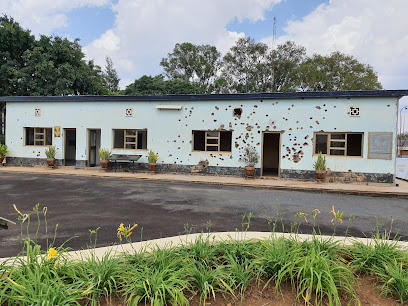
Ellen DeGeneres Campus of the Dian Fossey Gorilla Fund
Discover the Ellen DeGeneres Campus of the Dian Fossey Gorilla Fund, a pivotal location for mountain gorilla conservation in Rwanda's stunning Volcanoes National Park.
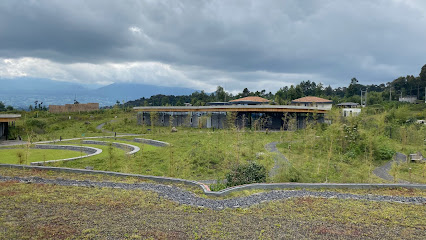
One&Only Gorilla's Nest
Experience the unparalleled luxury of One&Only Gorilla's Nest, your gateway to Rwanda's majestic gorillas and breathtaking landscapes.
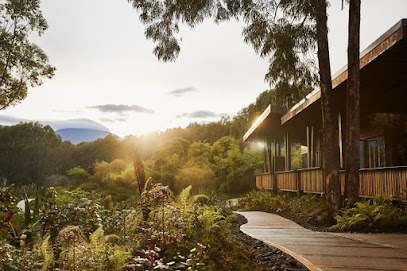
Shalom Safaris Rwanda
Experience the breathtaking landscapes and vibrant culture of Rwanda with Shalom Safaris - your ultimate travel companion for unforgettable adventures.
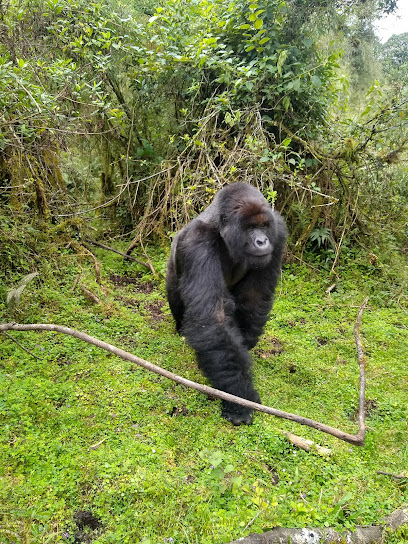
Virunga Lodge
Discover the breathtaking beauty of Rwanda at Virunga Lodge, where luxury meets nature in an unforgettable eco-friendly retreat.

Gishwati-Mukura National Park and Biosphere Reserve
Discover the enchanting beauty of Gishwati-Mukura National Park, a pristine biosphere reserve filled with rich biodiversity and lush landscapes.
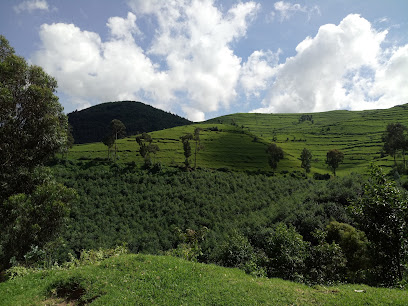
Gorilla Guardians
Experience the magic of Rwanda at Gorilla Guardians, your gateway to the majestic mountain gorillas and rich biodiversity of Volcanoes National Park.
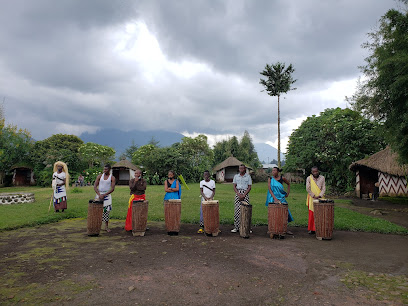
Rwanda Gorilla Safari
Experience the thrill of observing mountain gorillas in their natural habitat at the stunning Rwanda Gorilla Safari, a top eco-tourism destination.
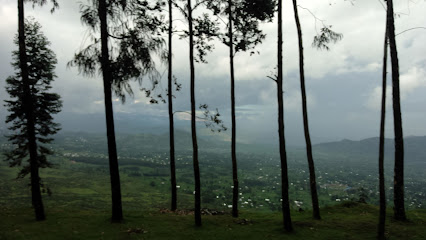
Mountain Gorilla View Lodge
Discover the tranquility and adventure at Mountain Gorilla View Lodge, your gateway to Rwanda's stunning landscapes and unforgettable wildlife experiences.

Wilderness Sabyinyo
Experience the beauty of Rwanda at Wilderness Sabyinyo Lodge, your luxurious gateway to the breathtaking Volcanoes National Park and unforgettable wildlife adventures.

Mount Bisoke
Experience the breathtaking beauty and adventure of Mount Bisoke, a stunning volcano in Rwanda, perfect for hikers and nature lovers alike.
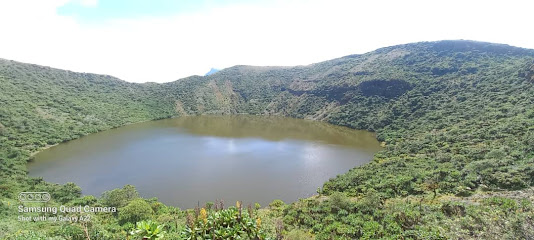
Essential places to dine
The Hut Restaurant and Boutique Hotel
Experience the best of Rwandan hospitality at The Hut Restaurant and Boutique Hotel – where exquisite dining meets cozy accommodations.
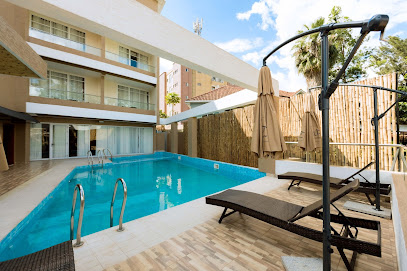
Repub Lounge
Experience Kigali's culinary delights at Repub Lounge—where local flavors meet modern ambiance in an unforgettable dining experience.
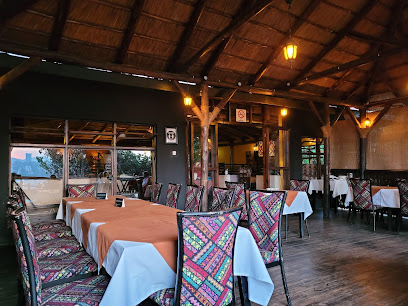
Migano Cafe
Experience the essence of Rwandan hospitality at Migano Cafe with diverse cuisine and inviting ambiance perfect for travelers.
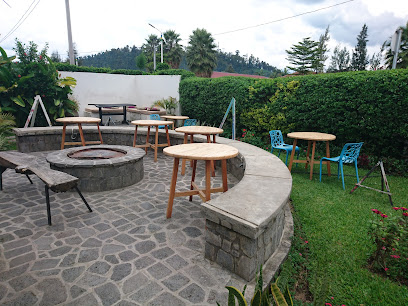
Heaven Restaurant & Boutique Hotel
Discover culinary delights at Heaven Restaurant & Boutique Hotel in Kigali – where local flavors meet international flair amidst stunning views.
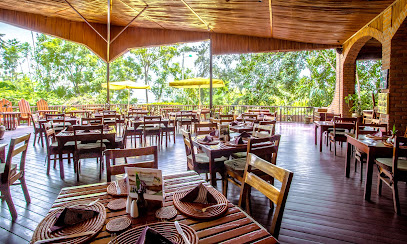
Bamboo Rooftop Restaurant
Discover exquisite Chinese cuisine and breathtaking views at Bamboo Rooftop Restaurant in Kigali - an unforgettable dining experience awaits!
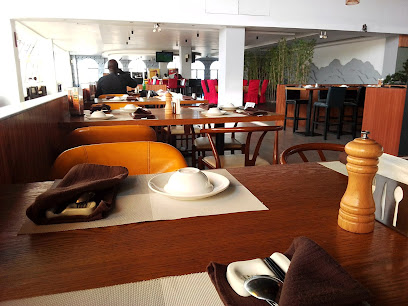
Poivre Noir
Experience the culinary excellence of Poivre Noir in Kigali, where local flavors meet international cuisine in an elegant setting.
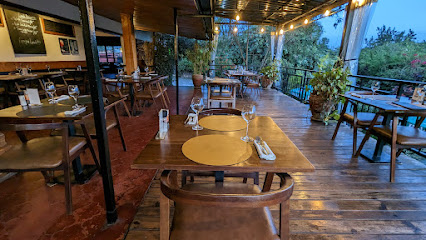
Brachetto Restaurant
Discover the culinary delights of Rwanda at Brachetto Restaurant in Kigali—where tradition meets modernity in every bite.
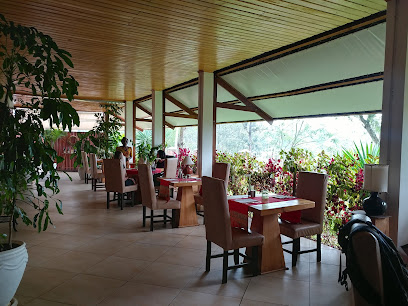
Filini Italian Restaurant
Experience authentic Italian cuisine at Filini Italian Restaurant in Kigali, where taste meets elegance amid stunning views.
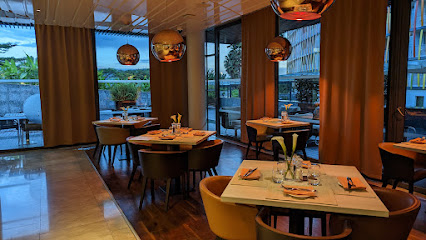
One&Only Gorilla's Nest
Experience luxury amidst nature at One&Only Gorilla's Nest, where breathtaking landscapes meet unforgettable wildlife adventures.
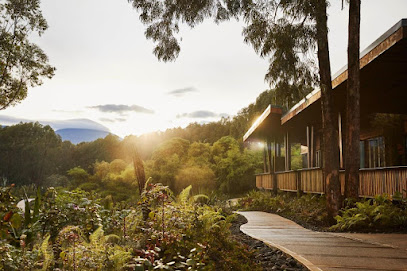
La Locanda
Experience authentic Italian cuisine and warm Rwandan hospitality at La Locanda in Ruhengeri, your perfect retreat for adventure.

Ruhondo Beach Resort
Experience tranquility at Ruhondo Beach Resort with stunning lake views, exquisite dining options, and access to thrilling outdoor adventures.

Volcana Lounge
Experience exquisite dining at Volcana Lounge in Musanze, where culinary delights meet breathtaking views of Rwanda's iconic volcanoes.
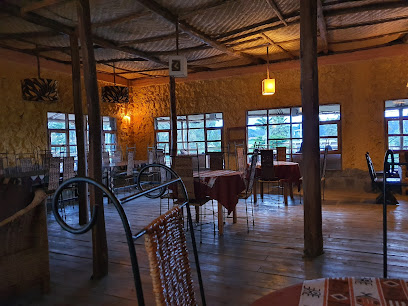
Wilderness Sabyinyo
Discover luxury and adventure at Wilderness Sabyinyo Lodge, your gateway to gorilla trekking and stunning mountain views in Rwanda.

The Garden Place Hotel
Discover tranquility at The Garden Place Hotel in Ruhengeri, your gateway to Rwanda's breathtaking landscapes and rich culture.
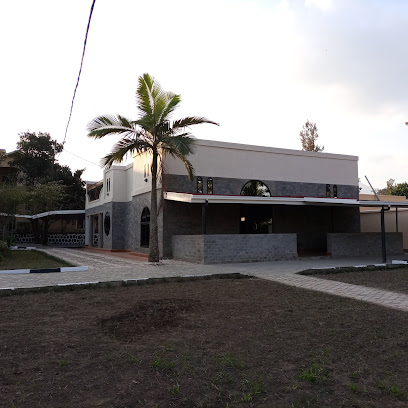
Volcano View
Discover tranquility at Volcano View, your ideal bed & breakfast for exploring Rwanda's stunning landscapes and wildlife adventures.
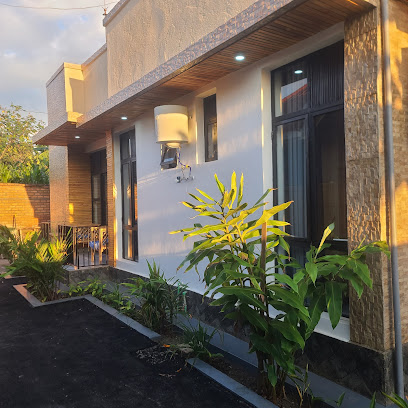
Markets, malls and hidden boutiques
Inema Arts Centre
Immerse yourself in the vibrant art scene of Kigali at Inema Arts Centre, a cultural hub showcasing contemporary Rwandan art and creativity.
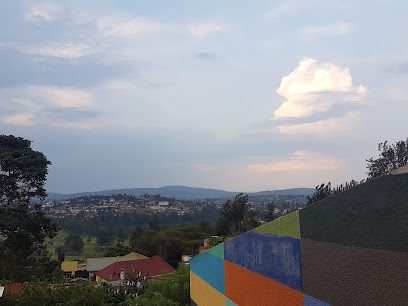
Nyungwe Forest National Park
Explore the lush biodiversity of Nyungwe Forest National Park, a breathtaking haven for nature lovers and adventure seekers in Rwanda.
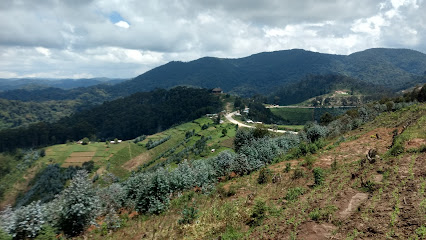
Volcanoes National Park Headquarters
Discover the breathtaking landscapes and wildlife at Volcanoes National Park Headquarters, the gateway to Rwanda's mountain gorillas and rich biodiversity.
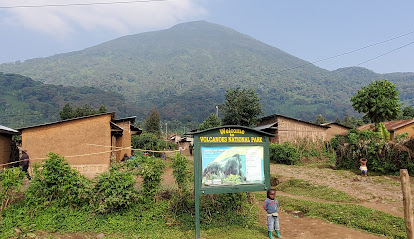
Best View Hotel Ltd
Discover the serene charm and breathtaking views of Best View Hotel Ltd in Ruhengeri, a perfect base for your Rwandan adventures.
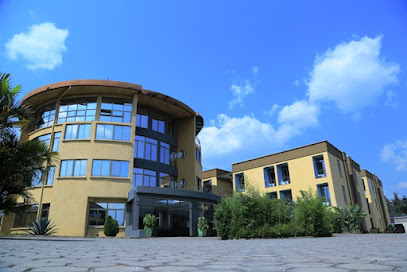
Crema
Experience the rich flavors of Rwandan coffee at Crema, a cozy coffee shop in Ruhengeri offering a warm atmosphere and delightful pastries.
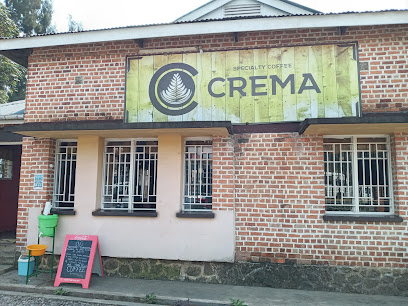
Niyo Arts Gallery
Discover the vibrant art scene of Rwanda at Niyo Arts Gallery, a cultural gem in Kigali showcasing local talent and creativity.
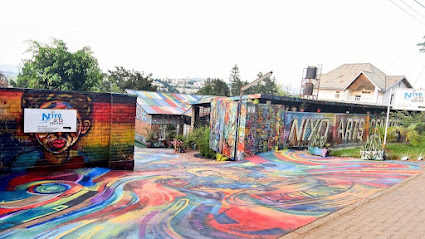
Discover Rwanda Youth Hostel
Discover Rwanda Youth Hostel: A welcoming retreat in Kigali blending comfort, culture, and connections for every traveler.
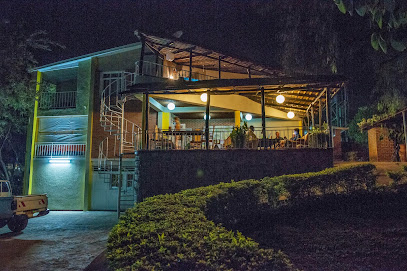
One&Only Gorilla's Nest
Experience luxury and adventure at One&Only Gorilla's Nest, the gateway to Rwanda's breathtaking mountain gorillas and stunning landscapes.
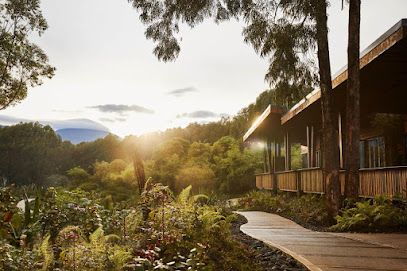
Kigali Arts Center
Discover the vibrant creativity at Kigali Arts Center, where Rwandan culture and contemporary art converge in a stunning cultural hub.
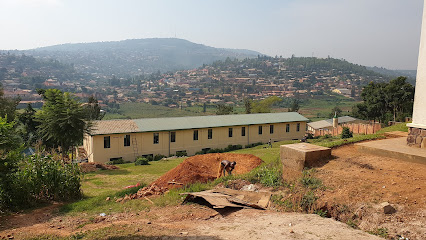
Virunga Lodge
Discover the stunning beauty of Virunga Lodge in Rwanda, where luxury meets nature amidst the majestic volcanoes and vibrant wildlife.

Go Kigali Tours & Boutique
Experience the unique blend of shopping and cultural tours at Go Kigali Tours & Boutique in Kigali, Rwanda.
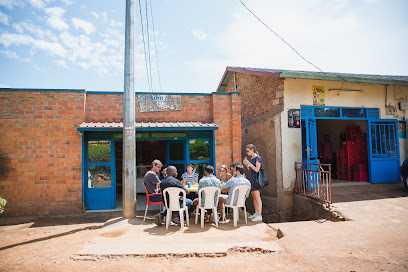
Choose Kigali
Discover Rwanda's artistic spirit at Choose Kigali, a vibrant gallery, cozy bed & breakfast, and expert tour operator, all in one unique location.
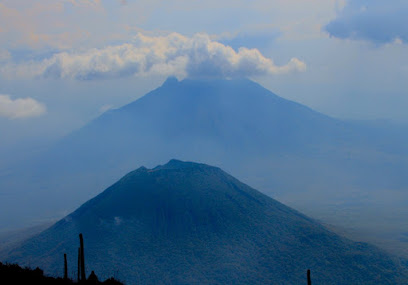
Gorilla Guardians
Discover the wonders of Rwanda at Gorilla Guardians, your gateway to unforgettable gorilla trekking experiences and stunning natural beauty.
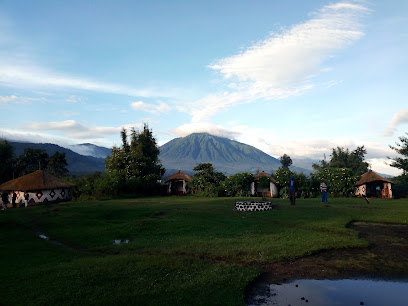
Mountain Gorilla View Lodge
Discover the magic of Rwanda at Mountain Gorilla View Lodge, your gateway to unforgettable wildlife adventures and stunning natural beauty.

Wilderness Sabyinyo
Discover the rustic elegance of Wilderness Sabyinyo Lodge, your gateway to the enchanting Volcanoes National Park in Rwanda.

Essential bars & hidden hideouts
Fuchsia Lounge (Kwa Jules)
Experience the vibrant nightlife of Kigali at Fuchsia Lounge, a stylish bar offering a diverse drink menu and lively ambiance.
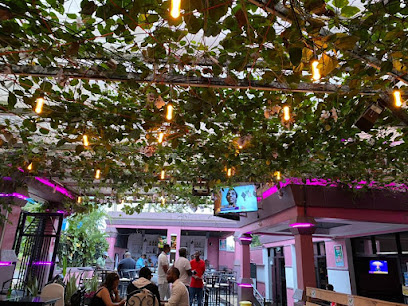
Green Corner
Discover the best grilled dishes in Kigali at Green Corner, an affordable grill restaurant perfect for family and friends.
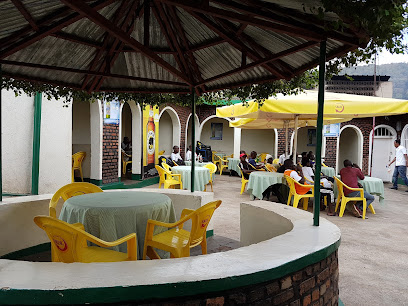
Torino Bar & Restaurant
Savor the best of Rwandan cuisine at Torino Bar & Restaurant, where delicious grilled dishes meet a vibrant atmosphere in Kigali.
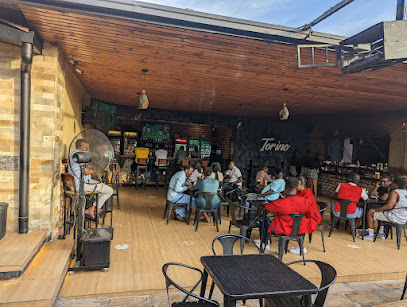
Rooftop Rendezvous
Discover Kigali's culinary scene at Rooftop Rendezvous, where breathtaking views meet delicious local and international flavors.
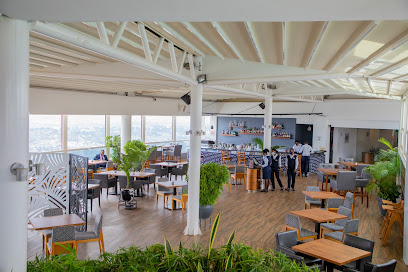
One&Only Gorilla's Nest
Experience the luxury of nature at One&Only Gorilla's Nest, your gateway to Rwanda's breathtaking landscapes and wildlife adventures.
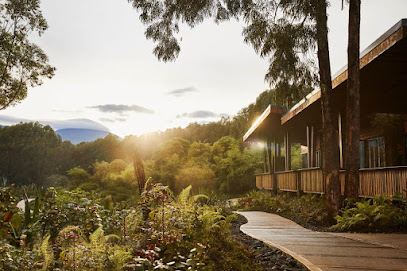
TEN TO TWO Chez Mutabazi
Savor the best breakfast in Kigali at TEN TO TWO Chez Mutabazi, where local flavors meet a cozy atmosphere.
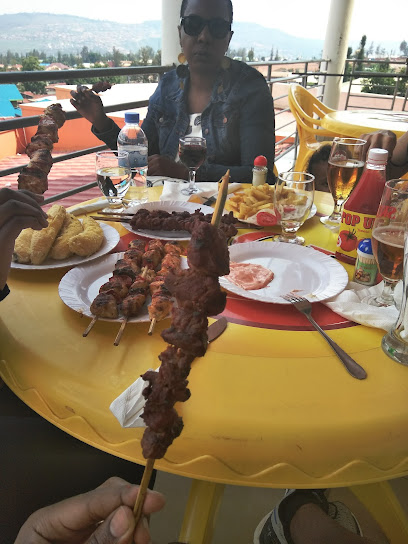
Volcana Lounge
Discover the flavors of Rwanda at Volcana Lounge in Musanze, where local cuisine meets stunning views and warm hospitality.
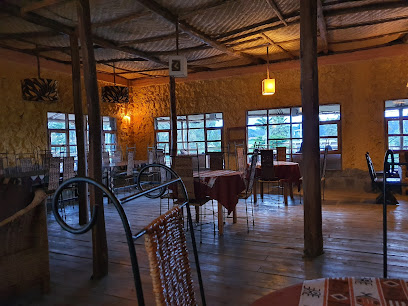
Cadillac Night Club
Discover the electrifying nightlife of Kigali at Cadillac Night Club, where music, dance, and unforgettable experiences come together.
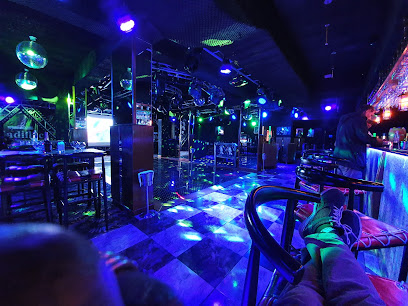
Volcanoes forest camp
Discover serenity and adventure at Volcanoes Forest Camp, where nature and luxury meet in the heart of Rwanda's breathtaking landscapes.

Volcanoes national park
Explore the breathtaking beauty of Volcanoes National Park, Rwanda, home to majestic volcanoes and the world-famous mountain gorillas.
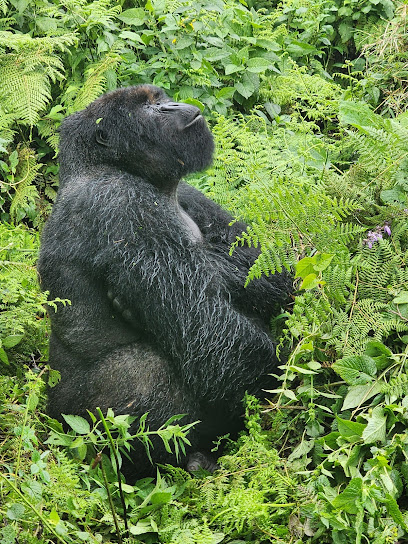
Legacy Lounge & Wine Bar
Experience Kigali's vibrant nightlife at Legacy Lounge & Wine Bar, where exquisite wines and a chic atmosphere await every visitor.
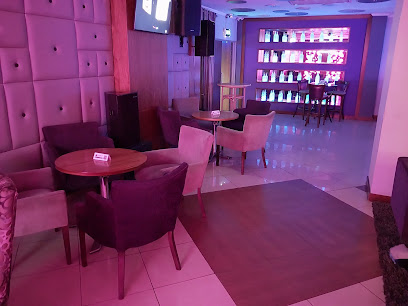
Rendezvous Lounge
Experience Kigali's vibrant nightlife and relaxing atmosphere at Rendezvous Lounge, the perfect spot for socializing and unwinding.
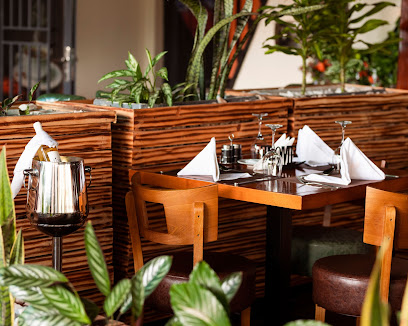
The B Lounge
Experience Kigali's nightlife at The B Lounge, a vibrant bar and disco club offering delicious food, cocktails, and unforgettable dance vibes.
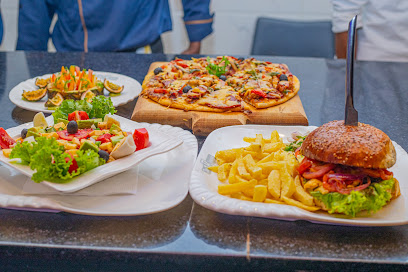
Local Phrases about Volcanoes National Park
-
- HelloMuraho
[moo-rah-ho] - GoodbyeMurabeho
[moo-rah-beh-ho] - YesYego
[yeah-go] - NoOya
[oy-ya] - Please/You're welcomeNizere
[nee-zeh-reh] - Thank youMurakoze
[moo-rah-koh-zeh] - Excuse me/SorryNdarota
[n-dah-roh-tah] - How are you?Amakuru?
[ah-mah-koo-roo] - Fine. And you?Ni meza. Na wewe?
[nee-meh-zah. nah-weh-weh] - Do you speak English?Mwibaza ikinyarwanda?
[mwee-bah-zah ee-kee-nya-rwan-dah] - I don't understandNtazi
[n-tah-zee]
- HelloMuraho
-
- I'd like to see the menu, pleaseNshaka kumenya ikimenyu, cyane
[n-shah-kah koo-mehn-yah ee-kee-men-yoo, ch-yah-neh] - I don't eat meatSi jya kunywa ibiryo
[see j-yah koo-ny-wah ee-bee-ryoh] - Cheers!Amahoro!
[ah-mah-hoh-roh] - I would like to pay, pleaseNshaka gukodesha, cyane
[n-shah-kah goo-koh-deh-shah, ch-yah-neh]
- I'd like to see the menu, pleaseNshaka kumenya ikimenyu, cyane
-
- Help!Uruhindu!
[oo-rue-heen-doo] - Go away!Jya kureba!
[j-yah koo-reh-bah] - Call the Police!Hariya Polisi!
[hah-ree-yah poh-lee-see] - Call a doctor!Hariya dokotere!
[hah-ree-yah doh-koh-teh-reh] - I'm lostNshaka kubyara
[n-shah-kah koo-bya-rah] - I'm illNshaka guhaguruka
[n-shah-kah goo-hah-goo-roo-kah]
- Help!Uruhindu!
-
- I'd like to buy...Nshaka kugura...
[n-shah-kah koo-goo-rah] - I'm just lookingNshaka kubona gusa
[n-shah-kah koo-boh-nah goo-sah] - How much is it?Ni amafaranga mezahe?
[nee ah-mah-fah-rang-gah meh-zah-heh] - That's too expensiveIyo ni ya nyuma cyane
[ee-yoh nee yah nyoo-mah ch-yah-neh] - Can you lower the price?Wibagirana igitsure?
[wee-bah-gee-rah-nah ee-gi-tsoo-reh]
- I'd like to buy...Nshaka kugura...
-
- What time is it?Saa ngapi?
[sah-ah ngah-pee] - It's one o'clockNi saa ya rimwe
[nee sah-ah yah reem-weh] - Half past (10)Iminota itandatu
[ee-mee-noh-tah ee-tahn-dah-too] - MorningUmugoroba
[oo-moo-goh-roh-bah] - AfternoonUmusore
[oo-moo-soh-reh] - EveningIgihe cya saha
[ee-gee-heh ch-yah sah-hah] - YesterdayEjo
[eh-joh] - TodayEjo
[eh-joh] - TomorrowEjo
[eh-joh] - 1Rimwe
[reem-weh] - 2Kabiri
[kah-bee-ree] - 3Gatatu
[gah-tah-too] - 4Kane
[kah-neh] - 5Gatanu
[gah-tah-noo] - 6Gatandatu
[gah-tahn-dah-too] - 7Karindwi
[kah-reen-dwee] - 8Umunani
[oo-moo-nah-nee] - 9Icyenda
[ee-ch-yehn-dah] - 10Icumi
[ee-choo-mee]
- What time is it?Saa ngapi?
-
- Where's a/the...?Ejo heza...
[eh-joh heh-zah] - What's the address?Aho ni aho?
[ah-hoh nee ah-hoh] - Can you show me (on the map)?Wibaze ndeke?
[wee-bah-zeh n-deh-keh] - When's the next (bus)?Igihe cy'inyuma?
[ee-gee-heh chee-nyoo-mah] - A ticket (to ....)Igitike (kuri ....)
[ee-gee-tee-keh koo-ree]
- Where's a/the...?Ejo heza...
History of Volcanoes National Park
-
Volcanoes National Park is set within the Virunga Mountains, a chain of volcanoes that were formed millions of years ago due to tectonic activity. These dormant and active volcanoes have shaped the landscape and ecology of the region, providing a stunning backdrop and unique biodiversity.
-
Volcanoes National Park was established in 1925 as part of the first national park in Africa, known as Albert National Park. The park was initially created to protect the mountain gorillas that inhabit the area, making it one of the earliest conservation efforts on the continent.
-
In 1967, American primatologist Dian Fossey established the Karisoke Research Center between Mount Karisimbi and Mount Bisoke. Fossey's groundbreaking work with mountain gorillas brought global attention to their plight and spurred conservation efforts. Her book, 'Gorillas in the Mist,' and its subsequent film adaptation, further highlighted the importance of protecting these majestic creatures.
-
The Rwandan Civil War and the subsequent genocide in 1994 had a devastating impact on Volcanoes National Park. Many of the park’s facilities were destroyed, and poaching increased dramatically. However, post-war recovery efforts have since revitalized the park, and it has become a symbol of Rwanda's resilience and commitment to conservation.
-
In recent years, the Rwandan government has introduced community-based tourism initiatives in and around Volcanoes National Park. These initiatives aim to involve local communities in conservation efforts and ensure that they benefit economically from tourism. Programs include cultural tours, handicraft markets, and community-led wildlife monitoring.
-
Kwita Izina is an annual ceremony held in Volcanoes National Park where newborn gorillas are named. The event, inspired by the traditional Rwandan naming ceremony for human babies, celebrates the birth of new gorillas and raises awareness about the ongoing conservation efforts. It attracts international attention and participation from global conservationists.
Volcanoes National Park Essentials
-
Volcanoes National Park is located in the northwestern part of Rwanda, near the town of Musanze (formerly Ruhengeri). The nearest international airport is Kigali International Airport, which is approximately 105 kilometers away. From Kigali, you can take a private car, taxi, or public bus to Musanze. The journey typically takes around 2 to 3 hours by road, depending on traffic and road conditions. Alternatively, some tour operators provide organized transfers directly from Kigali to the park.
-
Within Volcanoes National Park, the most common mode of transportation is by 4x4 vehicles, which are necessary for navigating the rugged terrain. For getting around Musanze, you can use local taxis, motorcycle taxis (moto-taxis), or hire a private car. Public buses and minibuses (matatus) are also available for transport between towns and villages, but they can be crowded and less reliable. Renting a car is an option, but only recommended if you are experienced with driving in rough conditions.
-
The official currency in Rwanda is the Rwandan Franc (RWF). Credit cards are accepted in some hotels, restaurants, and larger shops, but it is advisable to carry cash, especially in smaller establishments and rural areas. ATMs are available in Musanze, but it is wise to withdraw sufficient cash in Kigali before traveling to ensure you have enough funds. Always have some small denominations for tips and minor purchases.
-
Volcanoes National Park is generally safe for tourists. However, like any travel destination, it is advisable to take standard precautions. Avoid walking alone at night in unfamiliar areas and keep an eye on your belongings in crowded places. While Musanze is relatively safe, be cautious in busy markets and transport hubs where petty theft can occur. Always use reputable tour operators and guides when exploring the park.
-
In case of emergency, dial 112 for immediate assistance. The local police station and medical facilities are available in Musanze. It is recommended to have travel insurance that covers medical emergencies, including evacuation. For minor health issues, there are pharmacies in the town where you can purchase over-the-counter medications. Make sure to carry a basic first aid kit when trekking in the park.
-
Fashion: Do dress in comfortable, modest clothing suitable for outdoor activities. Wear sturdy hiking boots for trekking. Avoid wearing revealing clothing. Religion: Do respect local customs and traditions. Be mindful when visiting religious sites and communities. Public Transport: Do be respectful and give up your seat to elderly passengers. Don't eat or drink on public transport. Greetings: Do greet people with a handshake or a slight bow of the head. Learn some basic Kinyarwanda greetings to show respect. Eating & Drinking: Do try local delicacies and accept food offerings graciously. Don't refuse hospitality, as it is considered impolite.
-
To experience Volcanoes National Park like a local, visit the local markets in Musanze where you can buy fresh produce and traditional Rwandan goods. Engage with locals, as they are often friendly and willing to share stories about their culture and history. Don't miss visiting the Dian Fossey Gorilla Fund International Karisoke Research Center and the Iby'Iwacu Cultural Village for a deeper understanding of the region's conservation efforts and cultural heritage. For a unique experience, consider participating in community-based tourism activities that support local livelihoods.
Trending Landmarks in Volcanoes National Park
-
Akagera National Park
-
Nyungwe Forest National Park
-
Volcanoes National Park Headquarters
-
King's Palace Museum
-
Belgian Peacekeepers Memorial
-
Ellen DeGeneres Campus of the Dian Fossey Gorilla Fund
-
One&Only Gorilla's Nest
-
Shalom Safaris Rwanda
-
Virunga Lodge
-
Gishwati-Mukura National Park and Biosphere Reserve
-
Gorilla Guardians
-
Rwanda Gorilla Safari
-
Mountain Gorilla View Lodge
-
Wilderness Sabyinyo
-
Mount Bisoke
Nearby Cities to Volcanoes National Park
-
Things To Do in Rubavu
-
Things To Do in Gisenyi
-
Things To Do in Muhanga
-
Things To Do in Kibuye
-
Things To Do in Kigali
-
Things To Do in Karongi
-
Things To Do in Nyagatare
-
Things To Do in Nyamata
-
Things To Do in Butare
-
Things To Do in Kirundo
-
Things To Do in Mbarara
-
Things To Do in Kayanza
-
Things To Do in Ngozi
-
Things To Do in Cibitoke
-
Things To Do in Muyinga









